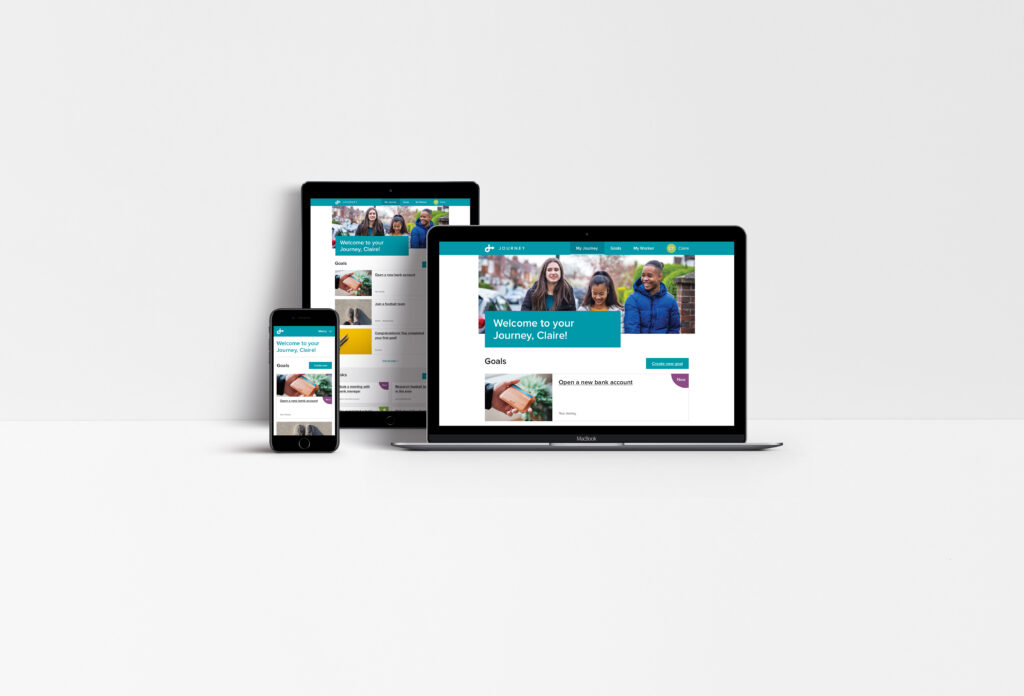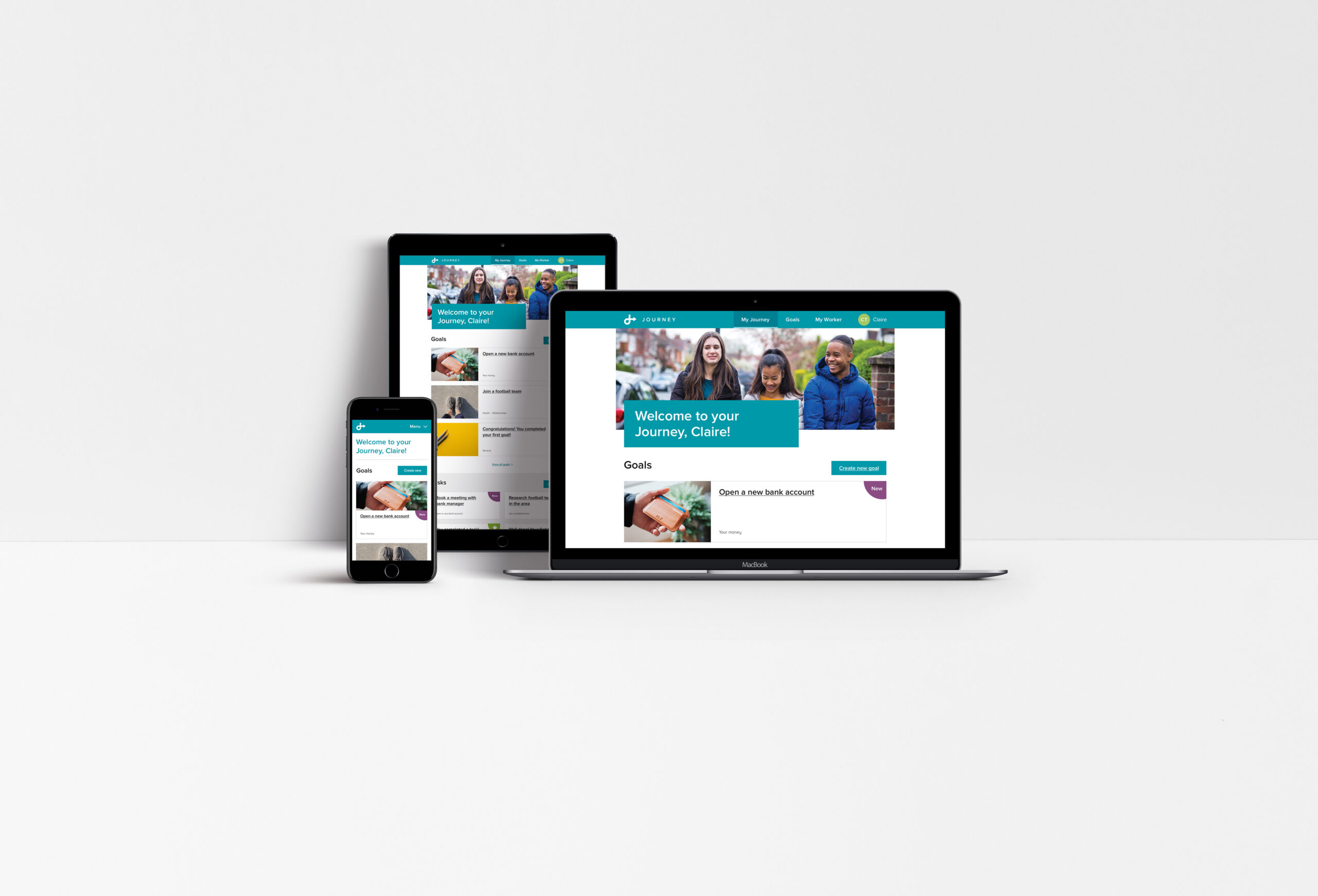We have seen over the past year how technology has allowed businesses to adapt and succeed despite COVID-19 restrictions. But while most industry leaders were able to do this from the comfort of their homes, the care sector had to adjust in real time on the front lines of the pandemic.

The reliance on technology from the past year has triggered a growing change in the care sector’s relationship with technology, with more efficient ways to address issues in social care delivery being brought to light. As a result, we are seeing a significant shift, with an acceleration in the development and adoption of technological solutions to care industry roadblocks. Necessity really is the mother of invention!
Examples of this include the recent digitisation of care planning and data collection processes found in various care homes across the country and the impact mobile technology has had on these practices, leading to more streamlined and effective care delivery. Essentially, these developments have allowed care providers to shift their focus away from administrative challenges and apply it to the actual care providing aspects of their jobs.
Jonathan Papworth, co-founder and director of Person Centred Software said it best in a recent opinion piece when he said,
“Providers can make time efficiencies that empower carers. Not only can app-based care evidencing tools save carers time, they also give them the tools they need to do their job. They provide reliable reminders, highlight concerns, and enable carers to monitor resident wellbeing.”
Echoing Mr. Papworth’s words, CareTech Charitable Foundation has found that digital solutions to social care problems have been incredibly beneficial to our own work, especially when it comes to young people and young care leavers.
We are currently in a partnership with young people’s charity Barnardo’s on a £1 million project to develop a ground-breaking digital resource to support young people leaving care who face a variety of challenges as they transition into adulthood.
With the support of the CareTech Foundation, Barnardo’s is developing a UK-wide innovative mobile based digital resource called “Journey”. Better outcomes for care leavers happen when they have consistent support from those supporting their transition to independent living. Journey will permanently connect young people and key workers, bridging the gap between face to face meetings and enabling a continuous feedback loop on progress.
For care staff, Journey will help create and save care leaver goals, tasks, comments and documents so they are always accessible. Progress can be monitored over time by young people, workers and supervisors. All data is easily transferred to the case management system and the transition of migrating a young person’s Journey case file to a new worker or moving to a different local authority is all managed seamlessly within the app.
Journey enables case workers to spend more time planning a young person’s transition to independence based on their own specific targets and desires, shifting the focus away from juggling multiple appointments and staying on top of admin tasks, whilst young people can have more meaningful, collaborative communications with their support worker, increased self-reliance due to improved access to information, and support as and when they need it.
Another example of CareTech Foundation’s embrace of technological solutions can be found from early in the pandemic when we partnered with Connect the Love, an initiative that provided elderly care homes with refurbished tablets to help isolated elderly people stay connected with their loved ones. Established single-handed by a tech entrepreneur desperate to do something to help during the pandemic, this programme addressed the crippling loneliness that plagued many care homes across the UK throughout the pandemic. The difference the donation of free tablets made to families otherwise unable to connect was incredibly powerful – and very moving.
This simple but powerful programme – that was also a very sustainable way of re-using old devices – led to CareTech Foundation and Connect the Love partnering with national brain injury charity Headway to help deliver its services. Our partnership worked to ensure brain injury survivors, their families and carers had the technology to deliver needed recovery support, stay in touch with their families and receive vital support, including digital therapy, support sessions, and cognitive exercises via apps or peer support sessions to reduce isolation.
The impact these devices had on Headway programmes during the height of the pandemic was a lifesaving model that can be implemented beyond the pandemic to reach brain injury survivors who may be homebound and not able to travel to treatment centres.
Social care will, of course, always be a ‘people business’ at heart. Those in need of care will always need in-person support by care workers, physically and emotionally. I know some care operators are doing some amazing things with robotics, but such innovation will only ever augment real people caring for other real people in my view. Used well, technology can enable more time to be better spent by care workers with their clients.
As we shift towards an ever more technologically savvy population, we are hopeful that leaders in the care sector will continue to be more open to ideas that implement technology into social care. A technologically sophisticated social care sector is also one that will be more attractive for today’s technology-literate workforce, which will help us to address the pressing recruitment issues of the sector.
We know that the world will never quite look the same after the pandemic. As the recent British Academy report on the societal and economic impacts of the pandemic makes clear, we are just entering what is likely to be the ‘COVID Decade’. The impacts of the pandemic are only just starting to be felt. Ideas that, two years ago, seemed laughable or fanciful are now just our ‘new normal’.
I am sure that the embrace of technology by the social care sector will be one, really important, positive by-product of the pandemic. I hope, and the CareTech Foundation will encourage and support, leaders in the sector will embrace these new opportunities to improve the quality of care, improve the working environment for care workers and to address some of the structural challenges facing the social care sector.
First published by Care Talk Magazine

